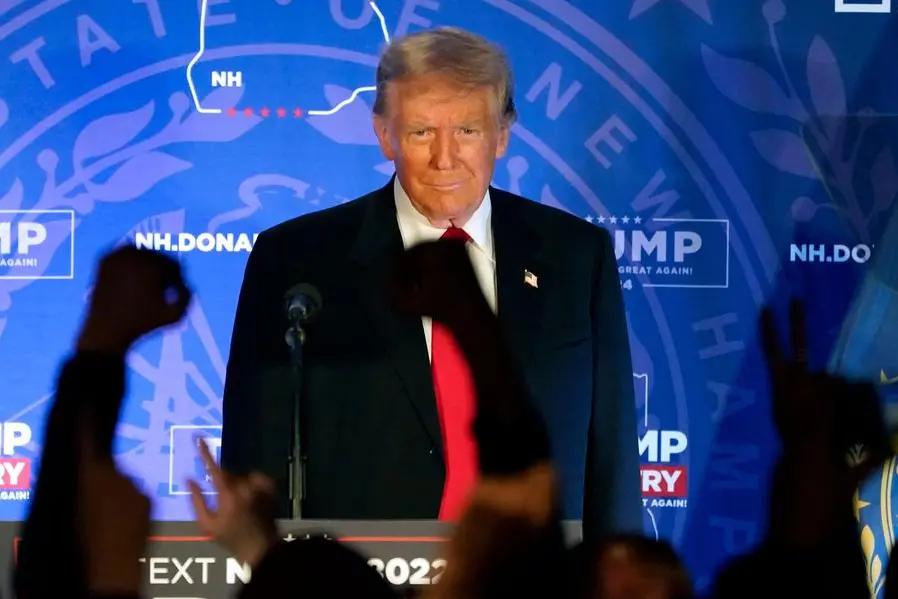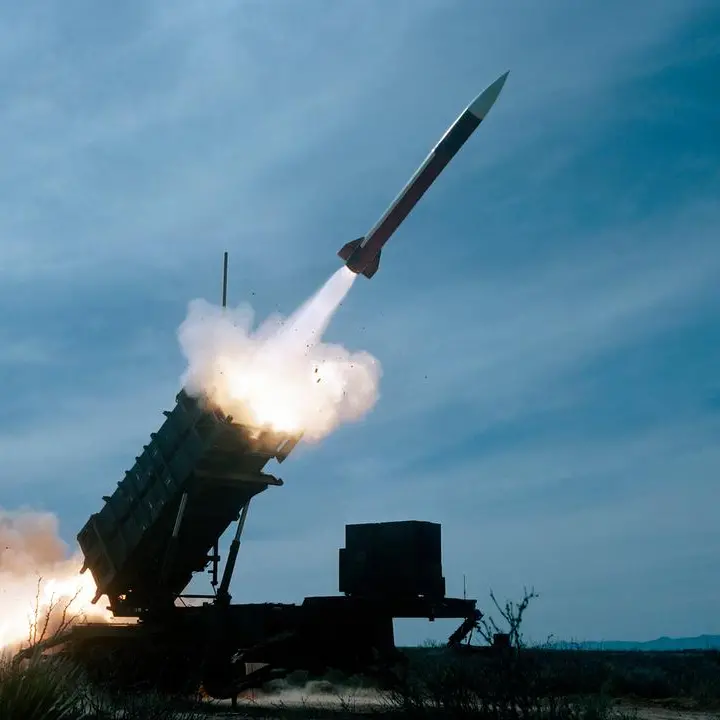PHOTO
A ghost of elections past in the form of ex-president Donald Trump haunted the annual schmoozefest of the world's political and business elites in Davos.
While the American reality television star-turned-politician was on the other side of the Atlantic, the biggest names in business, finance and politics at the Swiss Alpine resort could not escape him after he stormed to victory on Monday in the Iowa caucuses.
Trump is the frontrunner to be the Republican nominee for the November election, and that would mean a repeat of the race between him and current US President Joe Biden, a Democrat.
At the World Economic Forum in Davos, attendees believed Trump could win back the White House -- and his name came up until the very last day of the conference on Friday.
"In Davos, Donald Trump is already the president," Open Society Foundations chairman Alex Soros remarked at one of the final panels.
"That's a good thing, because the Davos consensus is always wrong," deadpanned Soros, the son of billionaire philanthropist George Soros.
From the International Monetary Fund's chief Kristalina Georgieva to OpenAI's Sam Altman, from EU chief Ursula von der Leyen to Ukrainian Foreign Minister Dmytro Kuleba, the Trump question reared its head at different events.
For Ukraine, the issue is more acute with fears that Washington could reduce aid for Ukraine as war fatigue sets in among its allies.
Kuleba told AFP on Thursday Ukraine "will accept the opinion of the people of the United States, and we will work with any reality that will follow the elections".
Kyiv has previously said a Trump victory could change how the war is played out.
- 'Too much' Trump talk -
Meanwhile, Georgieva swerved the question during an event on the sidelines of the WEF, saying "it is for the American people to decide who is their president".
Trump's first presidency between 2016 and 2020 was a turbulent time for Europe, with multiple spats over trade and apparent warnings that he would not come to the continent's aid if it was attacked.
European Central Bank chief Christine Lagarde noted it was up to the American people to decide during a Bloomberg event, but she appeared nervous about what a Trump win would mean.
"Obviously we are all concerned about it because the United States is the largest economy, the largest defence country in the world and has been a beacon of democracy, with all its upside and downside," she said.
Some had Trump talk fatigue.
"We are talking about Donald Trump too much in Europe," German Finance Minister Christian Lindner said during the forum's final panel.
"We should prepare ourselves for a possible second term for Donald Trump by fostering our European competitiveness," he added.
- Sanguine tech -
While many politicians in the West including EU leaders are worried about what a Trump victory could mean on critical issues including the war in Ukraine, many in the business sector were more sanguine.
"There's a lot at stake in this election," Sam Altman, CEO of ChatGPT developer OpenAI, said at another Bloomberg event, while adding: "I believe that America is going to be fine no matter what happens in this election."
Marc Benioff, CEO of software company Salesforce, also downplayed the Trump threat.
"Obviously, the US government is a large customer of Salesforce, and depending on who's in office, it creates a whole stir with a different part of our employee base," Benioff told Bloomberg.
"But the reality is, is that, hey, we are the same company regardless of when that election is going to occur and regardless of who that president will be," he added.
David Rubenstein, the co-chairman of the global investment firm Carlyle Group, said during the same panel with Lindner that Trump was "a serious political force".
He added people "should not discount the fact that he could well be elected again, despite the fact that many people in Europe are not really his biggest fans".





















